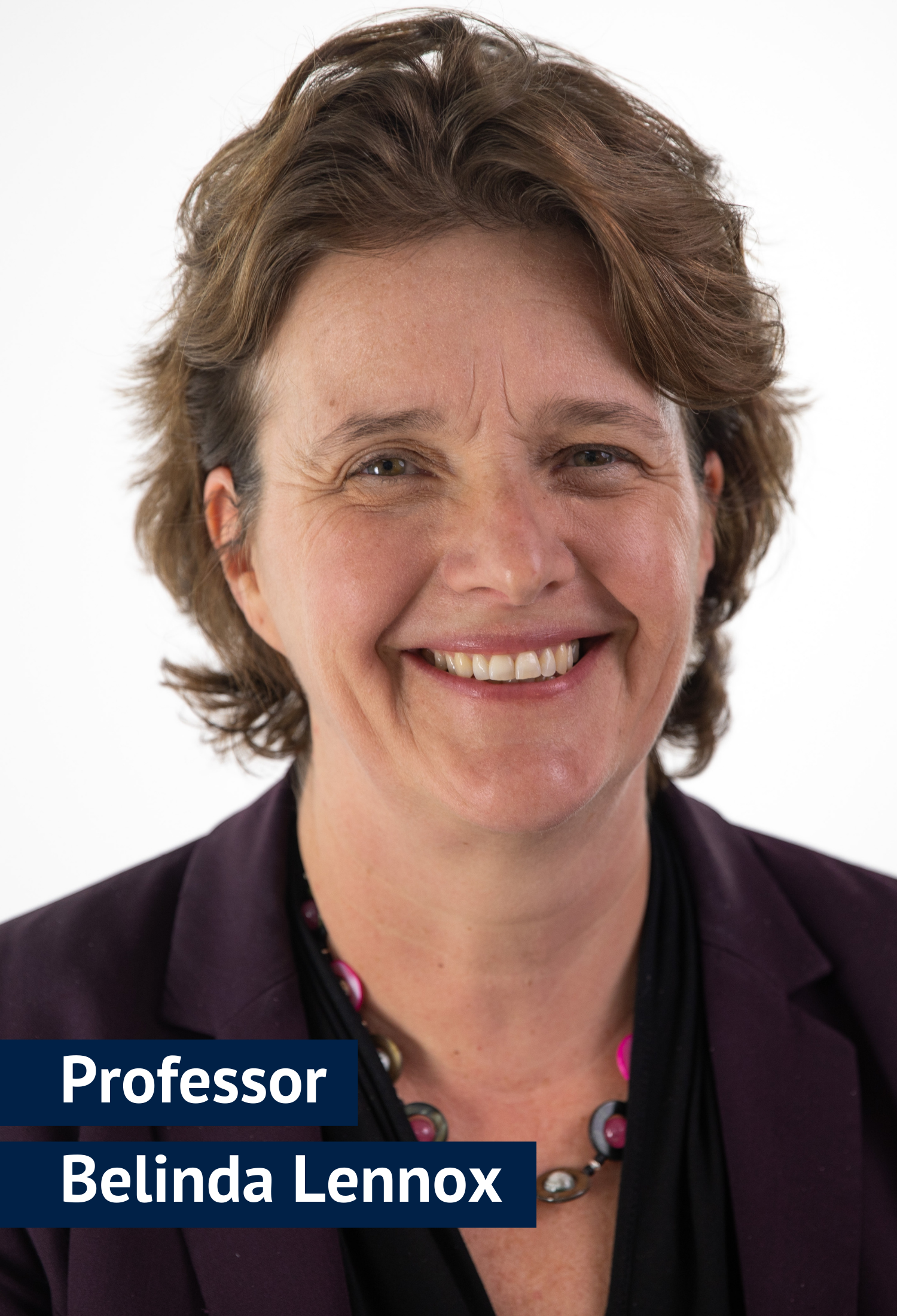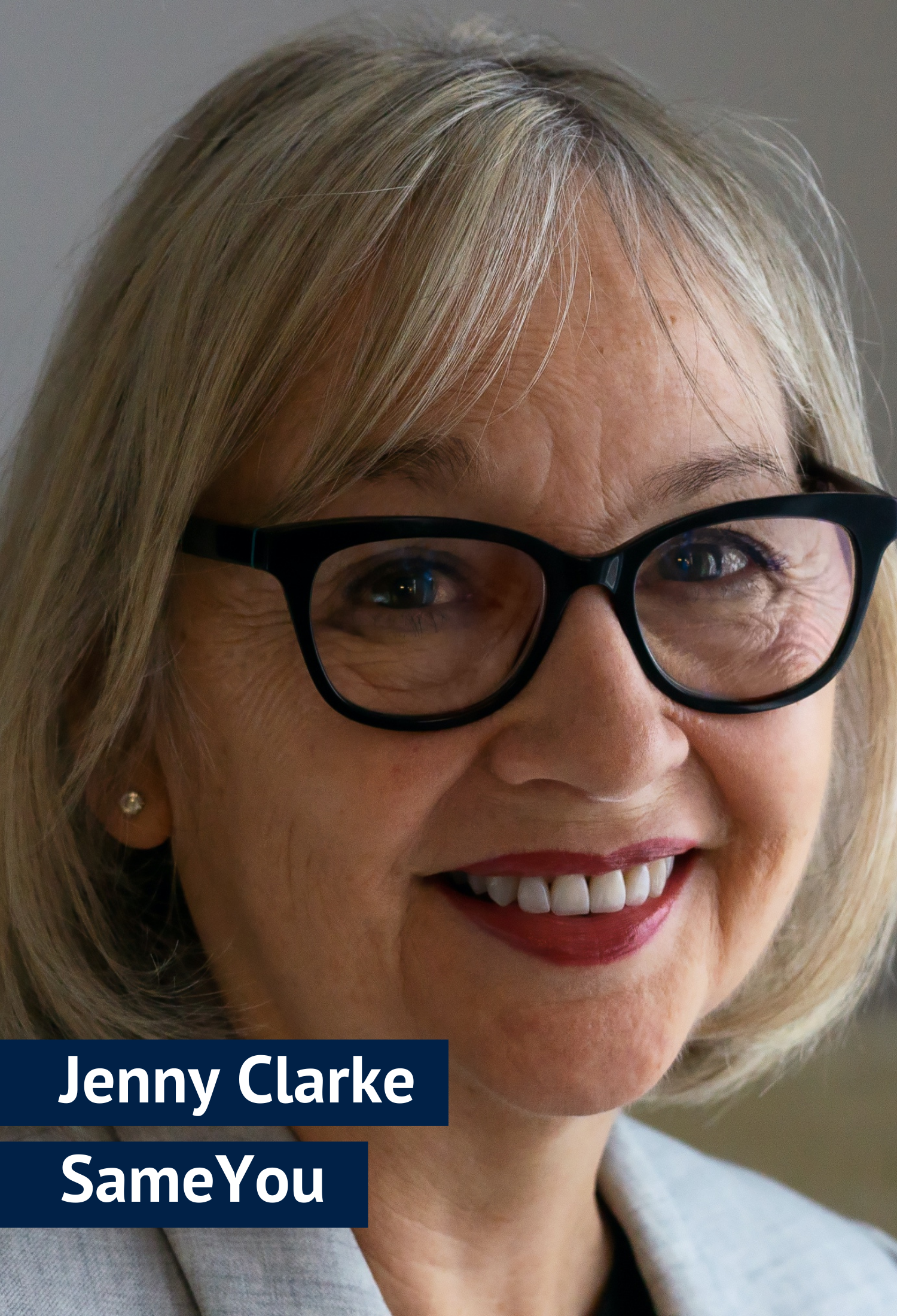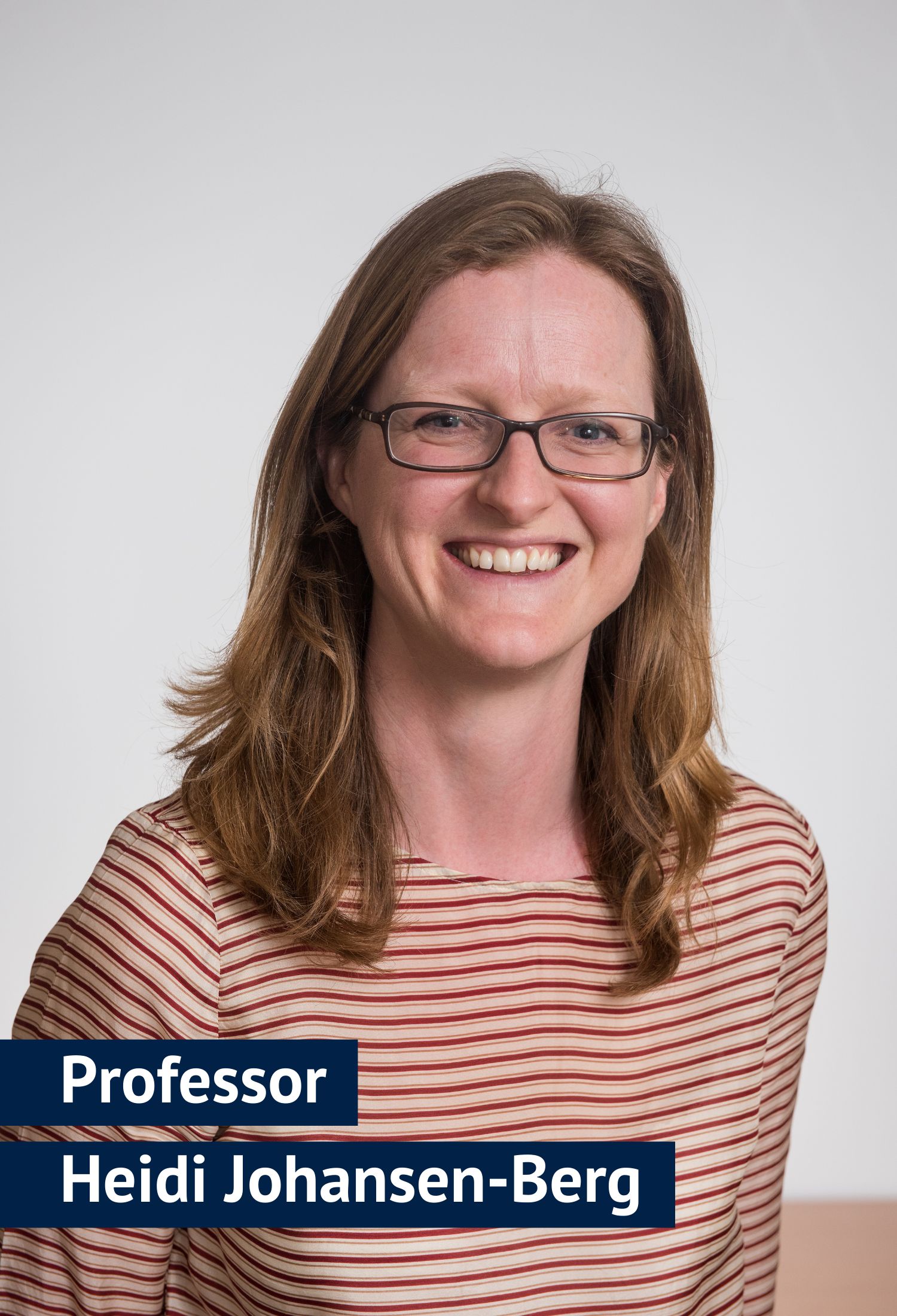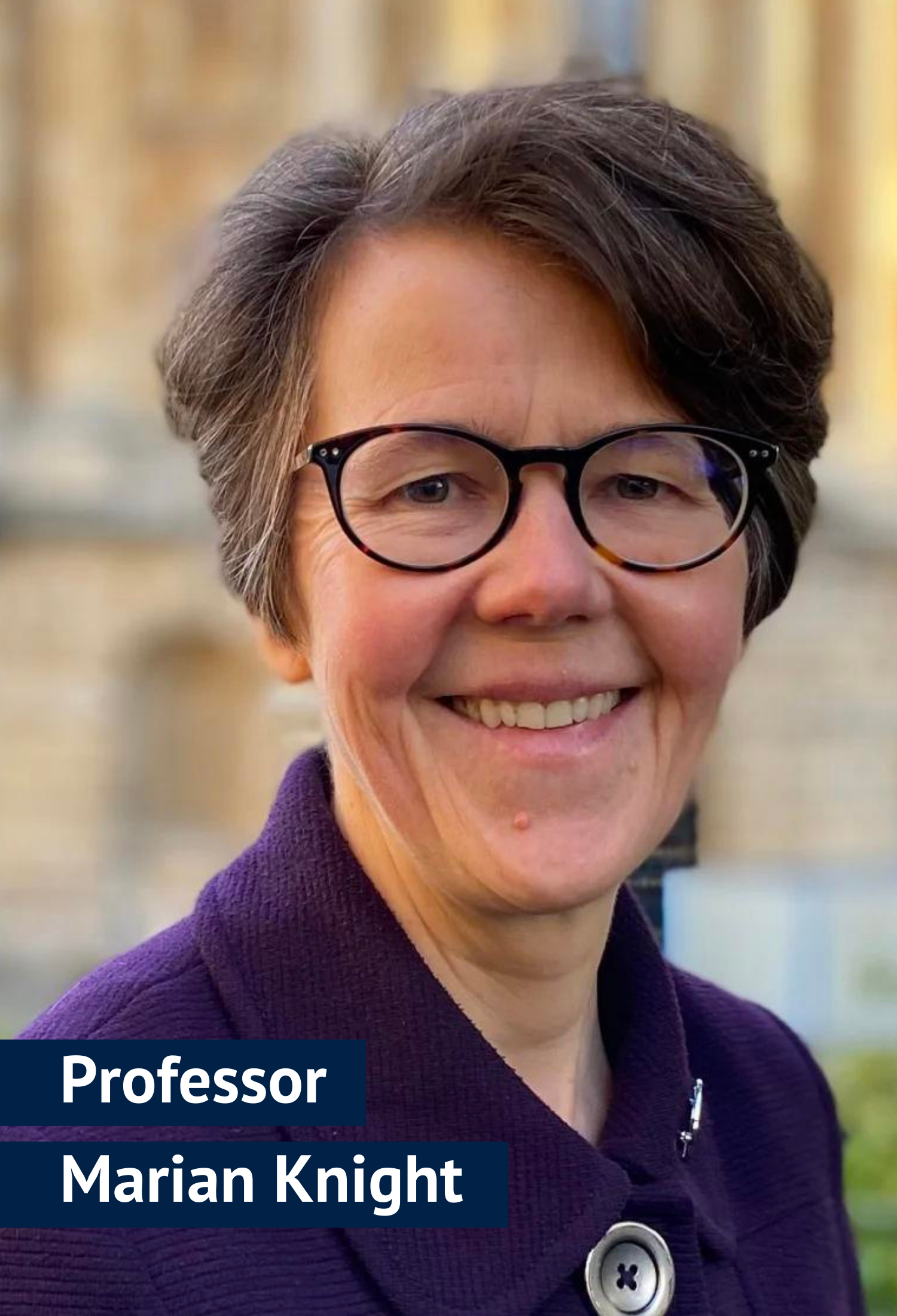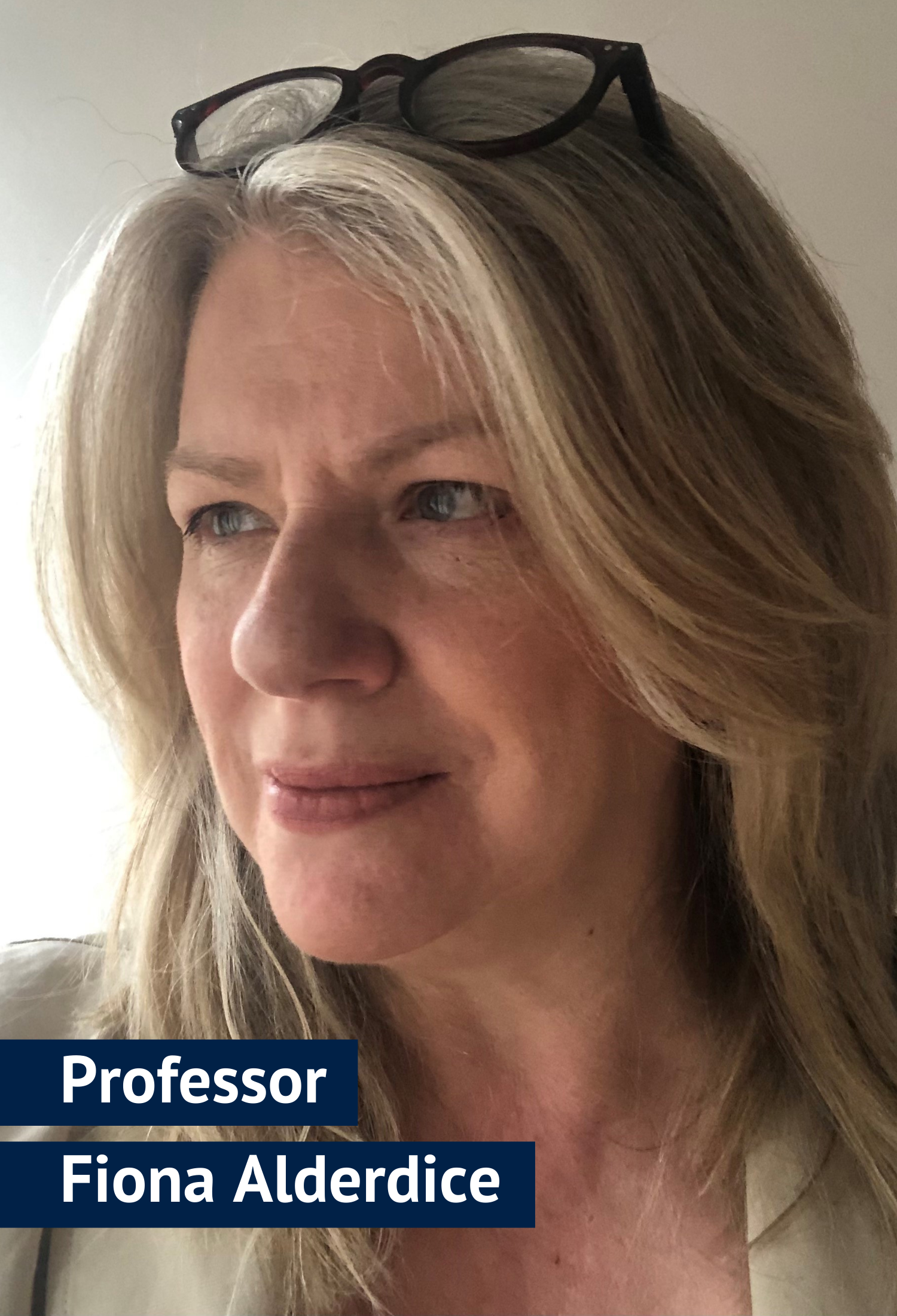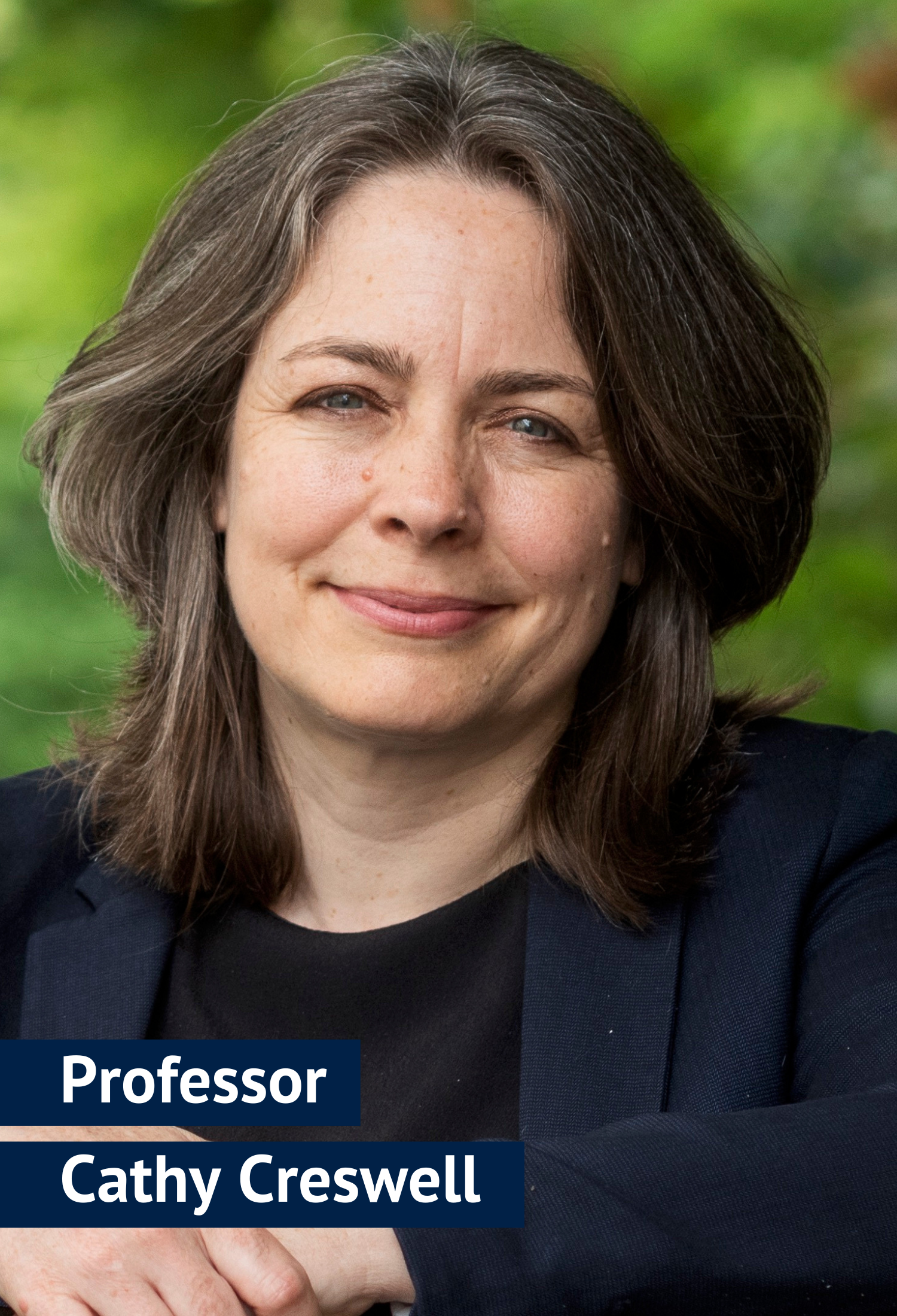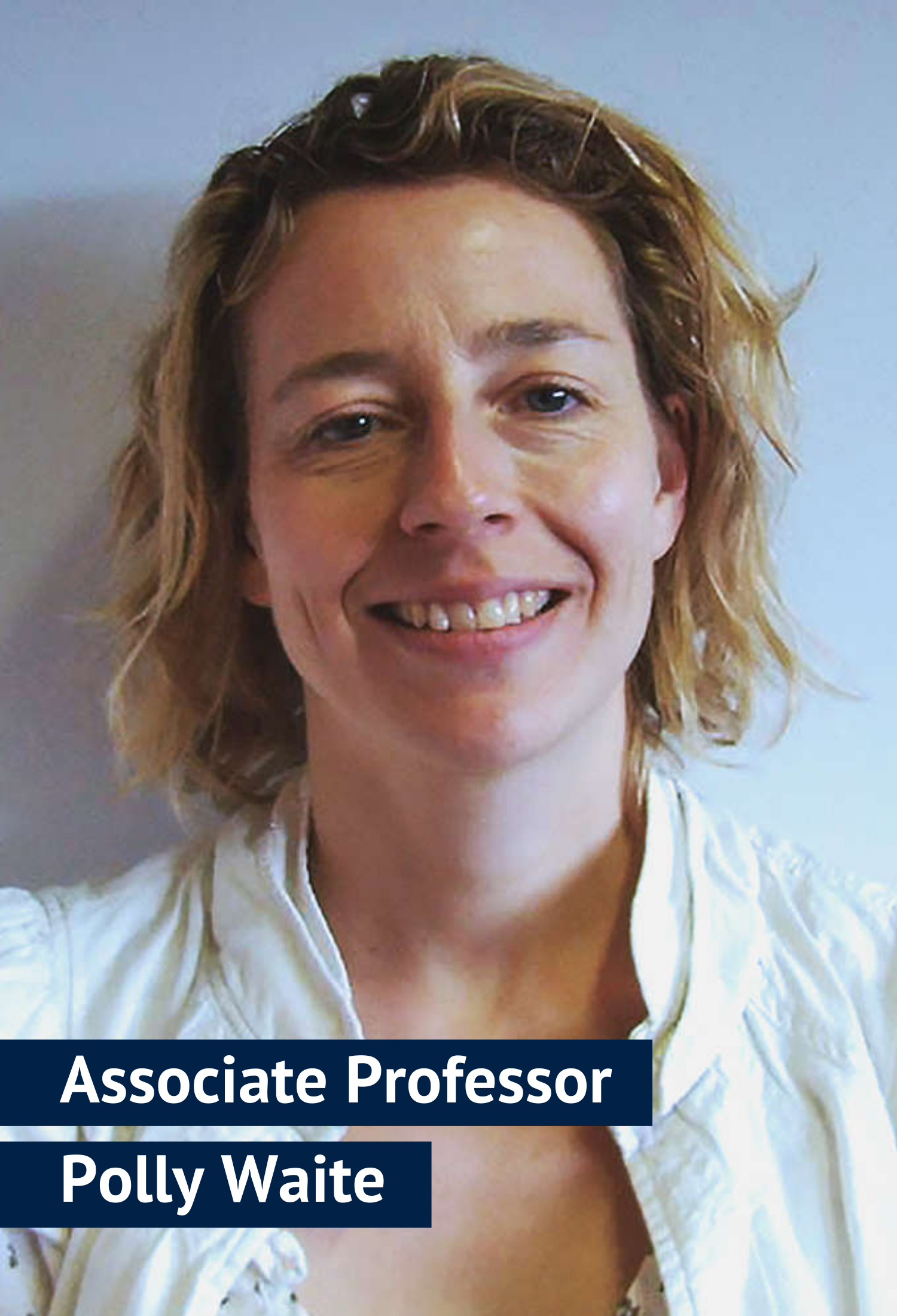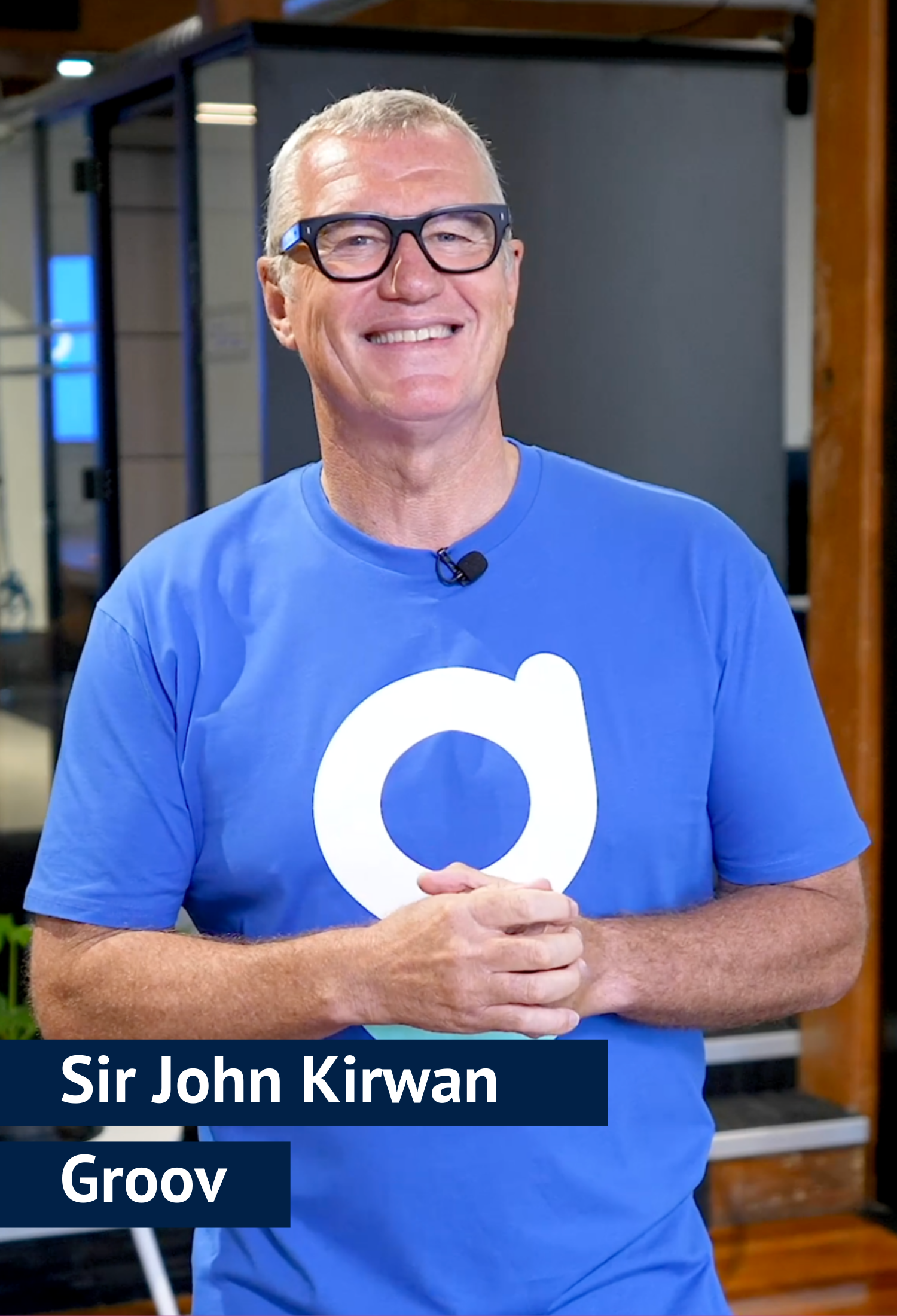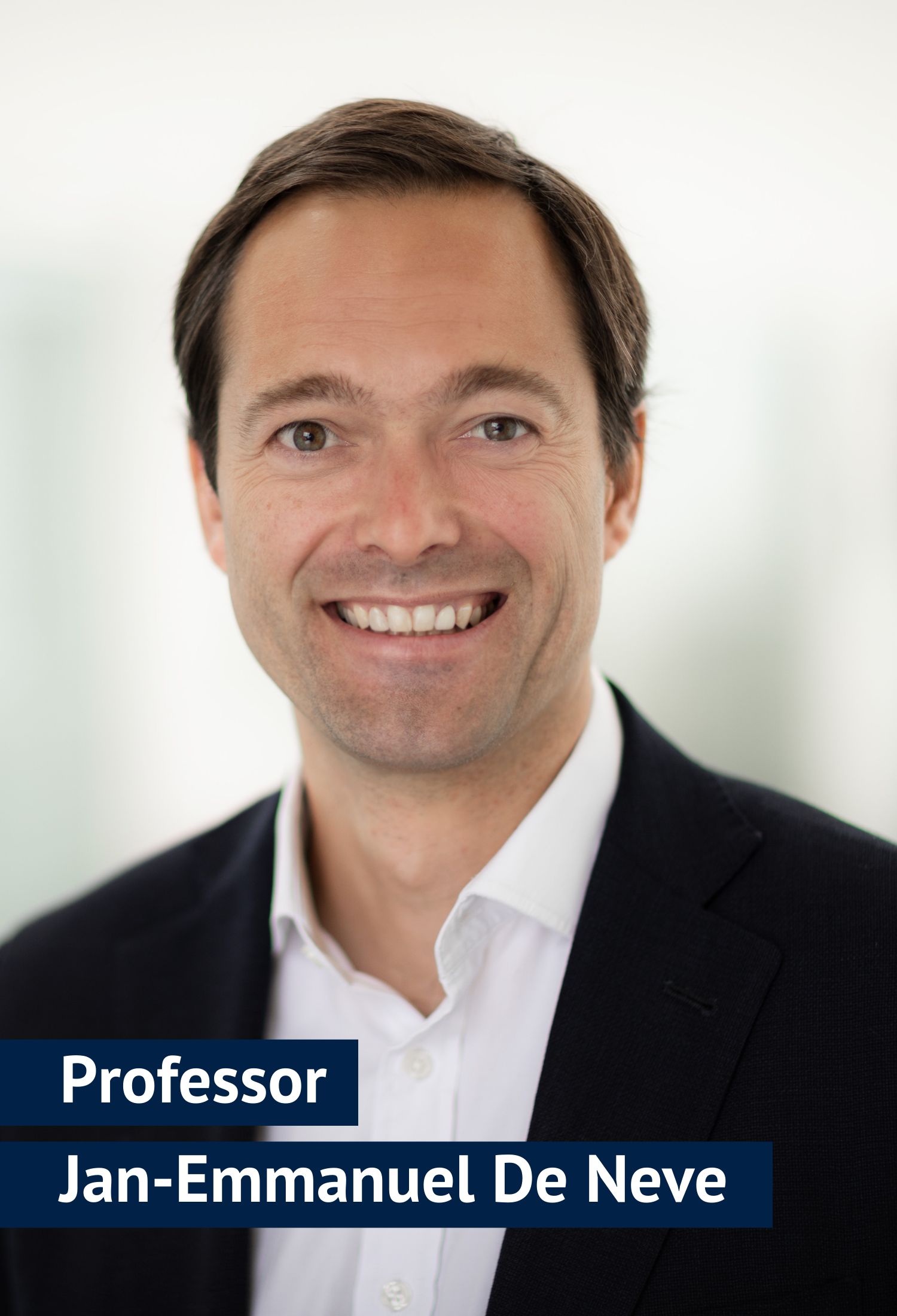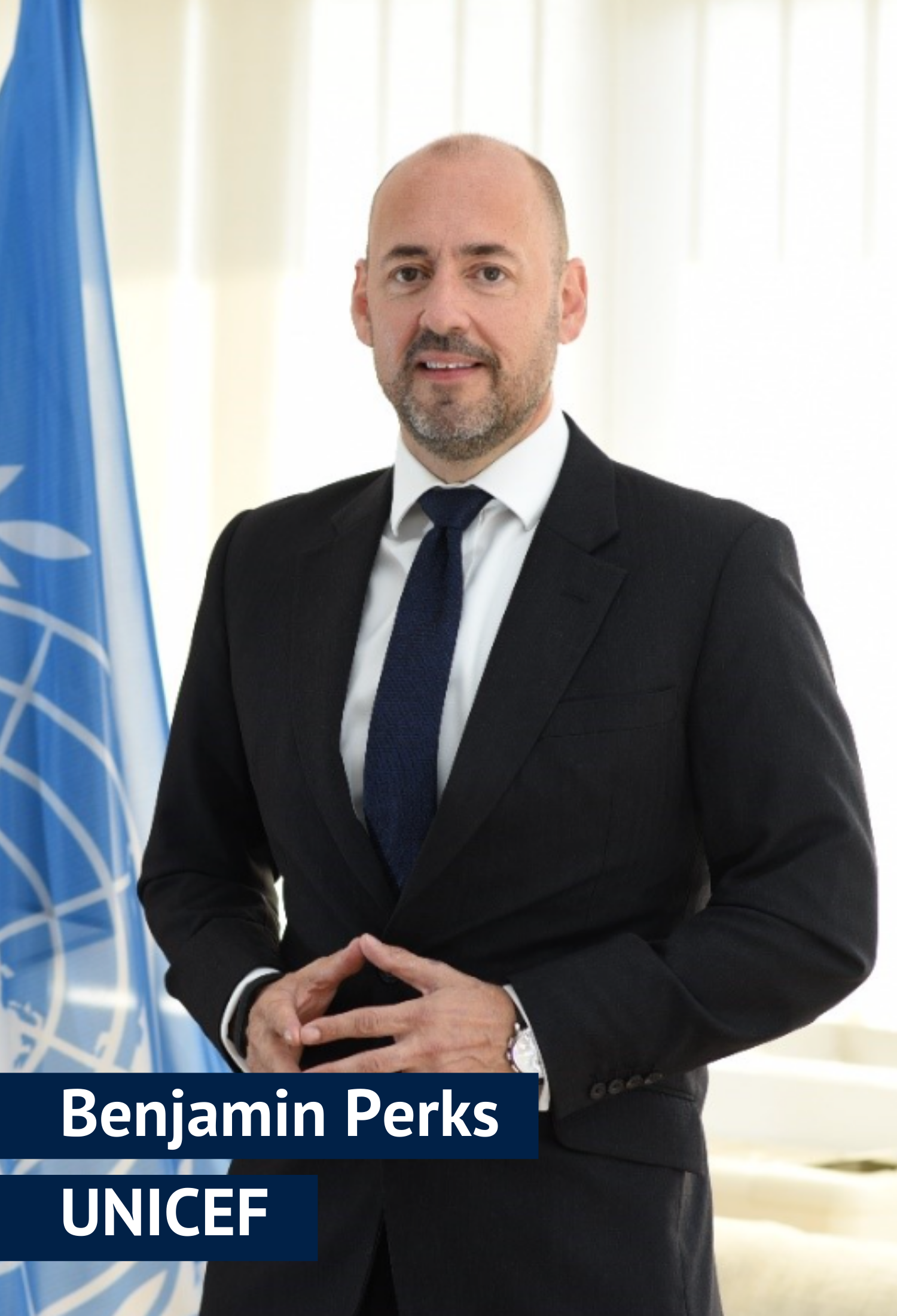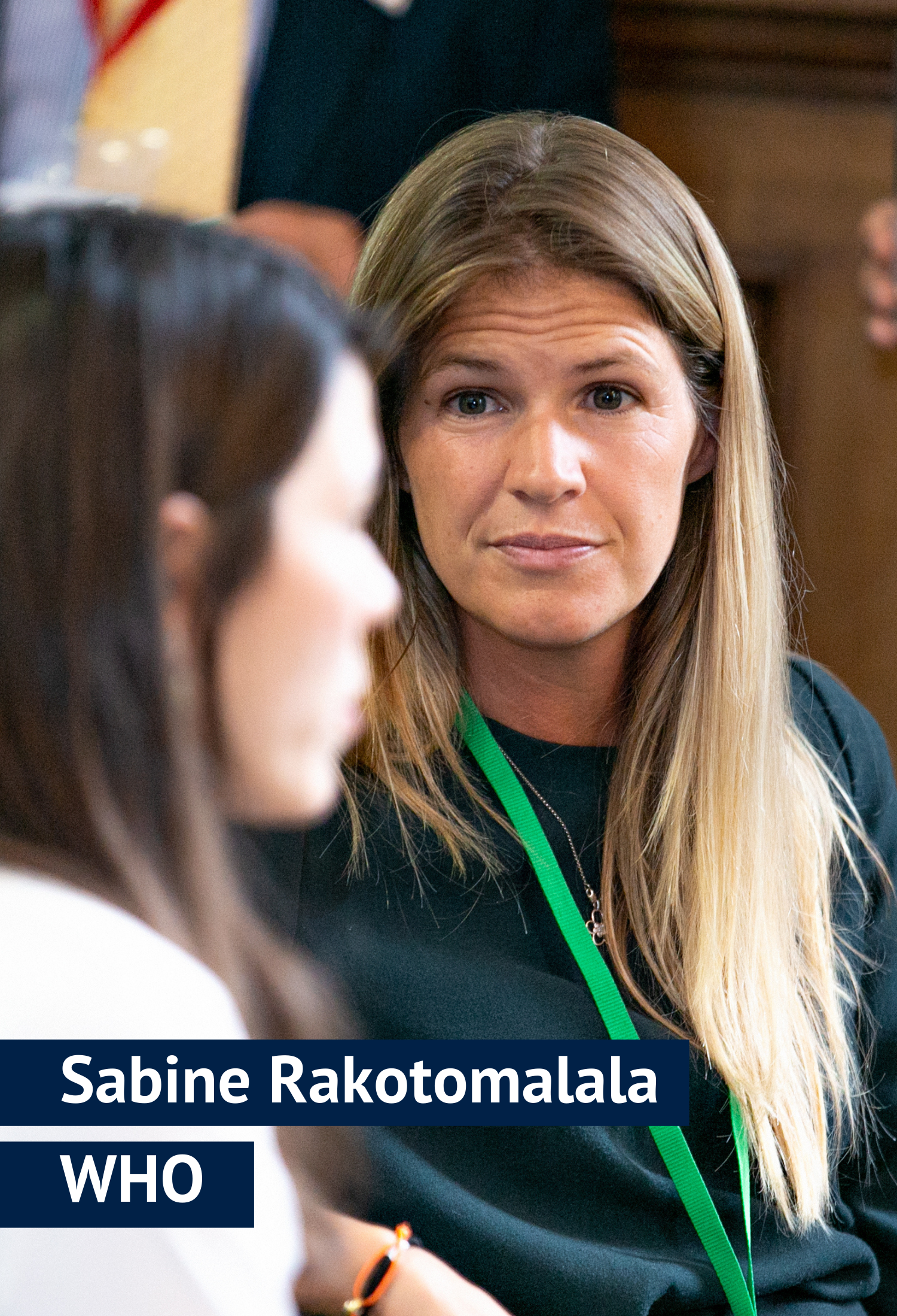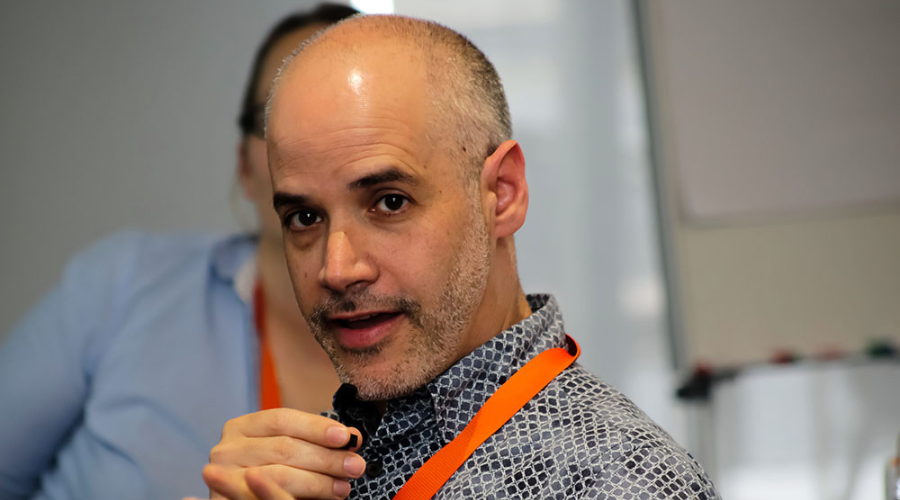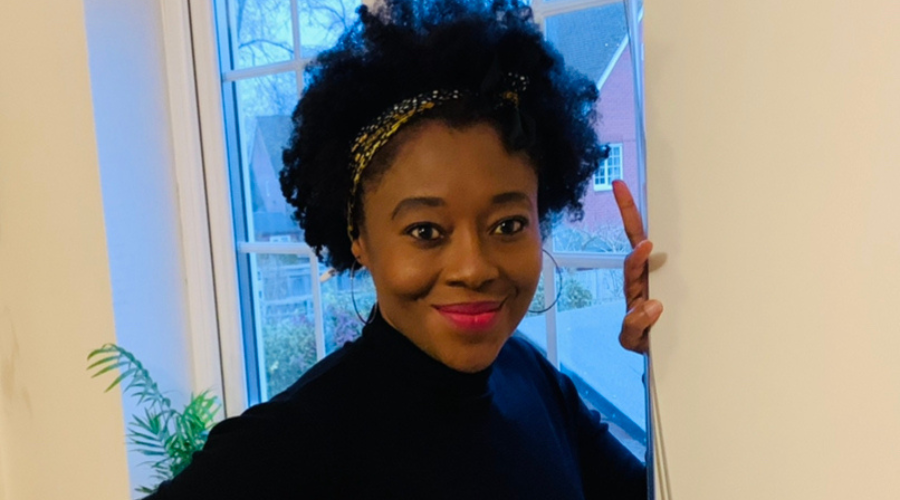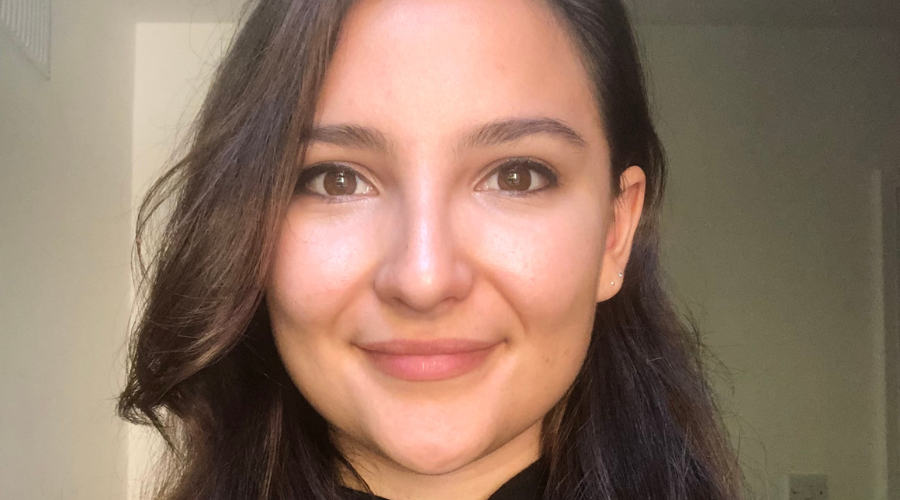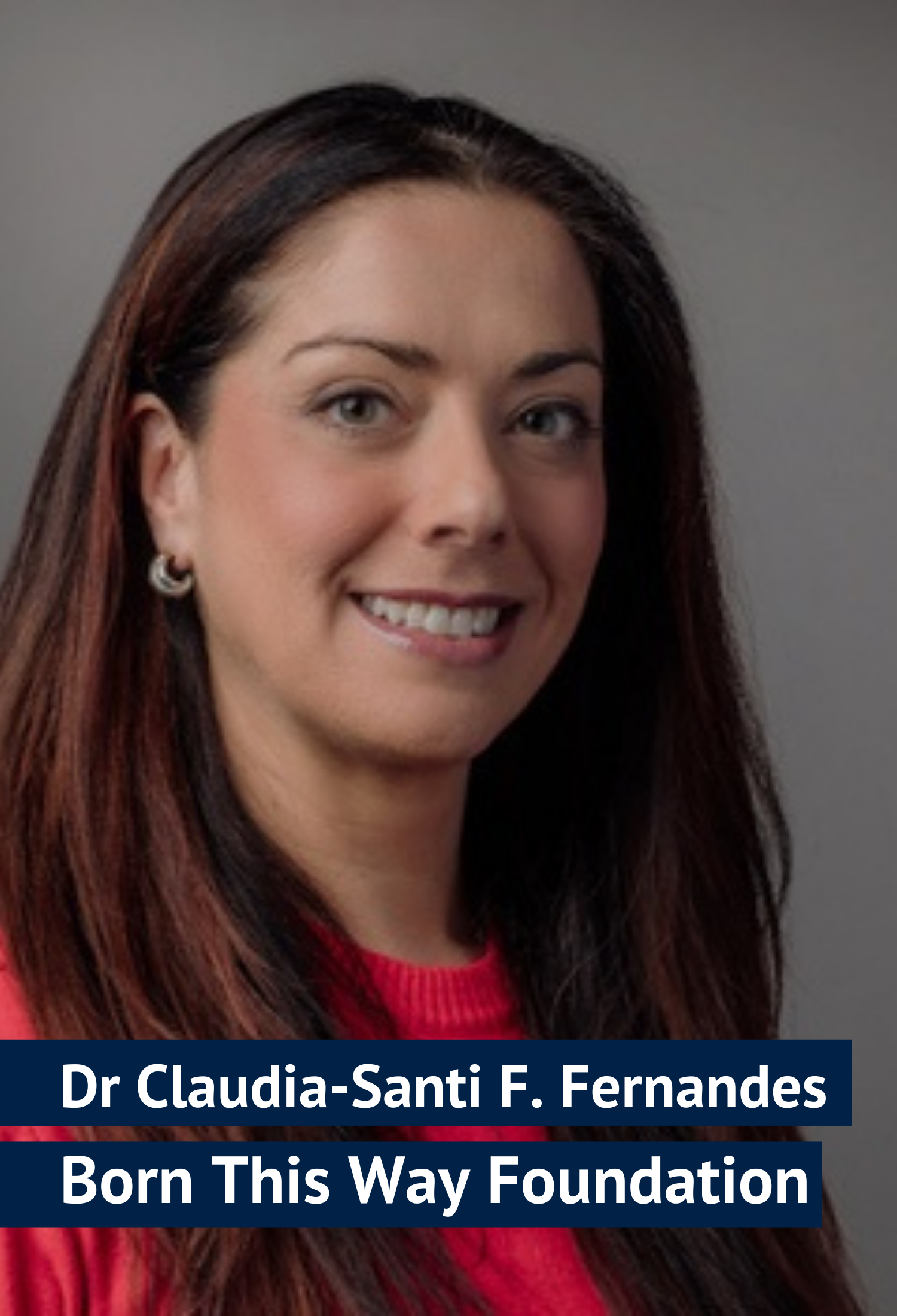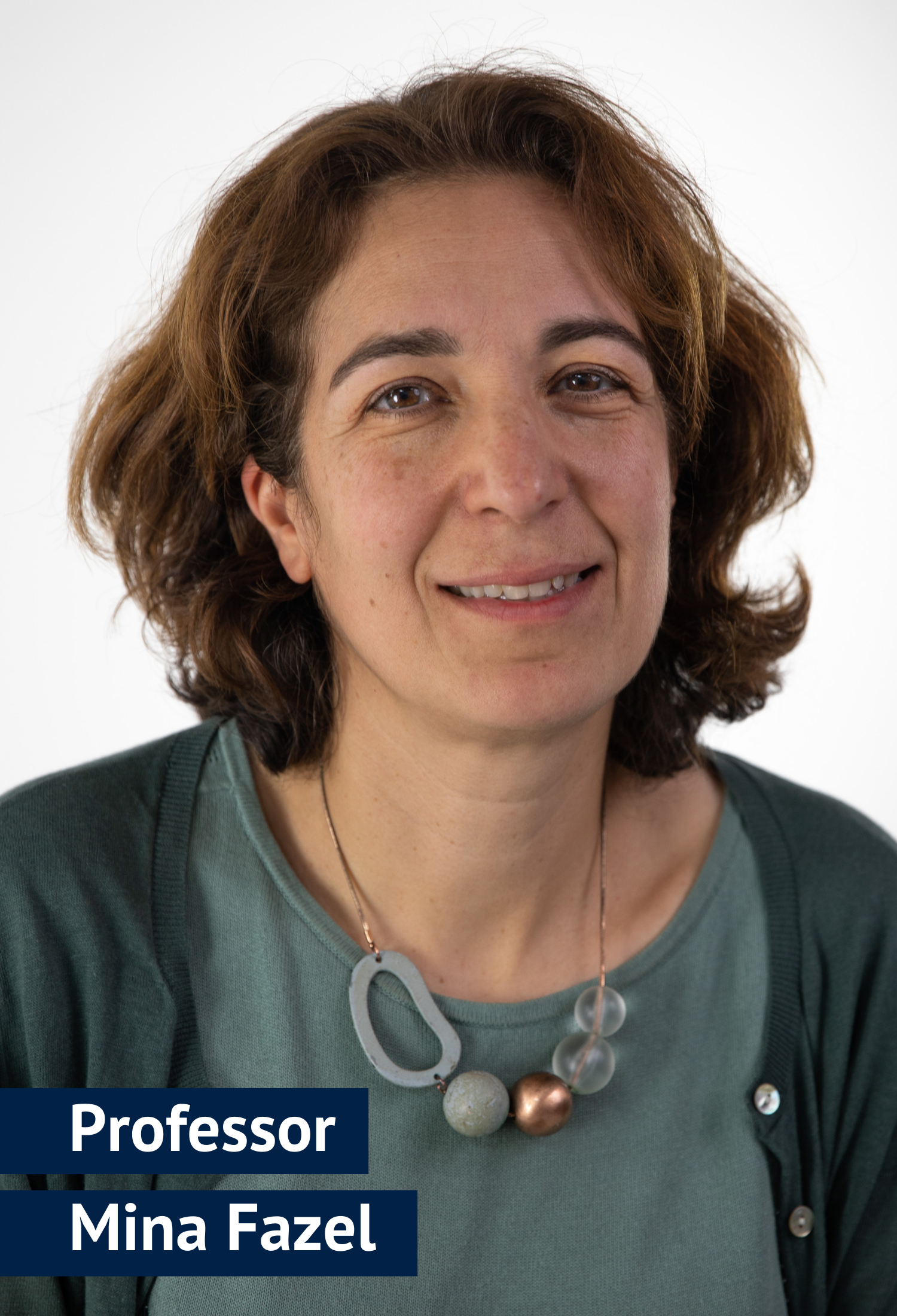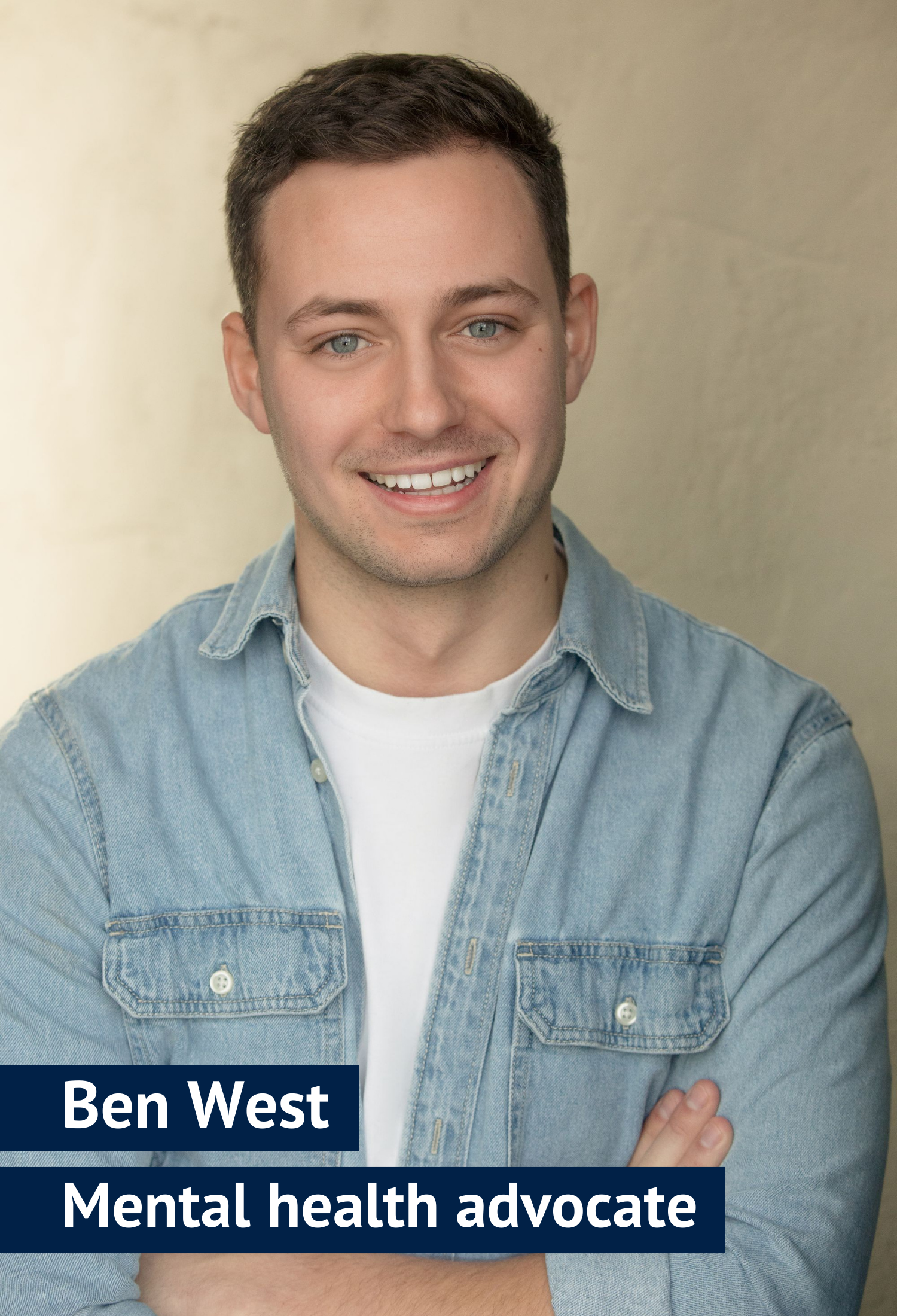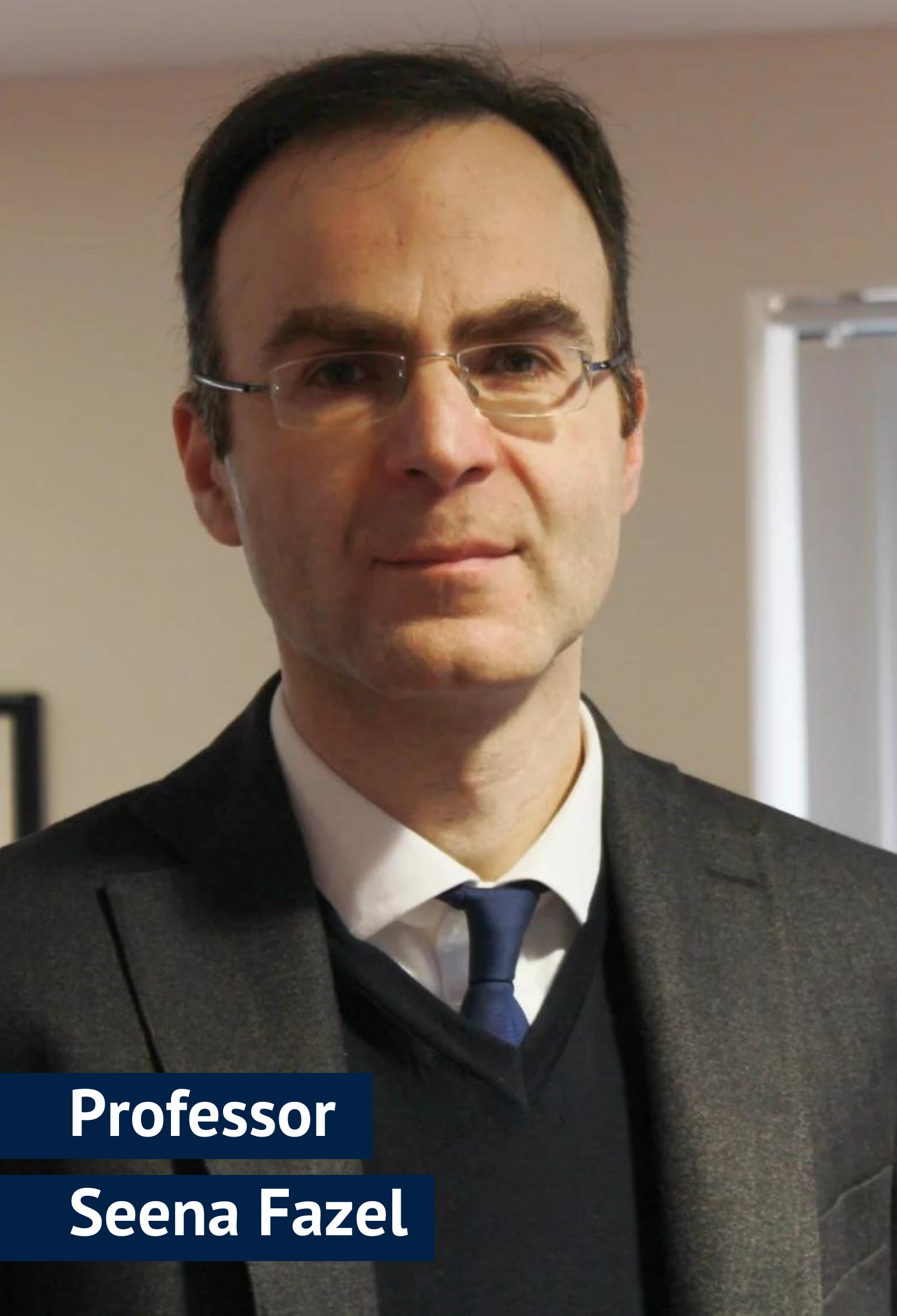Futuremakers: Brain and mental health.

Demystifying the science behind the human brain and examining the wide-reaching impacts of mental health conditions.
In this series we invite Oxford experts, and guests from beyond the university, to unravel the mysteries of the brain and examine how mental health issues impact individuals and society.
We investigate the global impact of these topics, and discuss what the future looks like.
This podcast is hosted by Belinda Lennox, Professor of Psychiatry and Head of Oxford's Department of Psychiatry.
Professor Lennox leads the Early Psychosis Research Group, which focuses on discovering the causes of psychotic illness and improving its treatment. This research aims to improve outcomes for people with first episode psychosis and leads the implementation of NICE quality standards for early psychosis for NHS England across the South of England.
Listen to the podcast:
Episode 1:
Brain injury and rehabilitation

Episode 1: Brain injury and rehabilitation
In the first episode of the series, Professor Lennox talks to Jenny Clarke, CEO and co-founder of the charity SameYou.
SameYou’s vision is to transform the way brain injury survivors and their loved ones are supported through emotional, mental health and cognitive recovery services, and was founded following Jenny’s daughter Emilia’s experiences of brain injury and recovery.
They are joined by Professor Heidi Johansen-Berg, Director of Oxford’s Wellcome Centre for Integrative Neuroimaging (WIN) and head of the Plasticity Group which studies how the brain changes when we learn, get older, or when we recover from damage such as stroke.
The conversation delves into what happens to the brain when it suffers an injury or stroke, the role of neuroplasticity in recovery and the vital role of nurses in the future of rehabilitation.
Listen to Episode 1:
Listen to the podcast on Spotify, Apple Podcasts or Amazon Music.
- Learn more about SameYou's 33 Steps to Brain Recovery
Episode 2:
Maternal mental health

Episode 2: Maternal mental health
Content warning:
Please be aware that this episode refers to depression, psychosis, PTSD and topics such as maternal suicide.
In the second episode of the series Professor Lennox is joined by Professors Marian Knight and Fiona Alderdice to examine how mental illnesses impact women and families in the postnatal period, and the power of speaking out.
Professor Marian Knight is the Director of Oxford’s National Perinatal Epidemiology Unit (NPEU) and Honorary Consultant in Public Health with Public Health England. She also leads the MBRRACE-UK national confidential enquiries into maternal morbidity and mortality.
Professor Fiona Alderdice is Senior Social Scientist at Oxford’s National Perinatal Epidemiology Unit (NPEU) and Honorary Chair in Perinatal Health and Wellbeing at Queen’s University Belfast.
Here, they explore how shame, guilt and stigma can lead to a deterioration in mental health for women after giving birth, and the need for more resource and research in this area.
Listen to Episode 2:
Listen to the podcast on Spotify, Apple Podcasts or Amazon Music.
- Find out more about After Birth: A play about maternal mental health
- Access resources via the Maternal Mental Health Alliance
- Learn more about the MBRRACE-UK survey
Episode 3:
Childhood and adolescent anxiety

Episode 3: Childhood and adolescent anxiety
Content warning:
Please be aware that this episode refers to topics such as depression, disordered eating and anxiety.
In the third episode of the series Professor Lennox sits down with Professors Cathy Creswell and Polly Waite to talk about how anxiety affects young people and the complex picture that makes up the risk factors for developing mental health disorders.
They also look at the effective new treatments being developed, and the work being done to make them as accessible as possible.
Cathy Creswell is Professor of Developmental Clinical Psychology and holds a joint position in Oxford’s Departments of Experimental Psychology and Psychiatry. Professor Creswell leads the TOPIC research group, investigating the development, maintenance and treatment of anxiety disorders in children and young people.
Polly Waite is Associate Professor of Clinical Psychology at Oxford’s Department of Experimental Psychology, where her research focuses on the development, maintenance and psychological treatment of anxiety disorders in adolescents specifically.
Associate Professor Waite co-leads the Co-SPACE project with Professor Creswell, tracking the mental health of children and adolescents over the course of the pandemic.
Listen to Episode 3:
Listen to the podcast on Spotify, Apple Podcasts or Amazon Music.
- Access resources for young people via the Emerging Minds research network
- Find the Little Brown self-help book series Helping Your Child
Episode 4:
Building resilient mental health in the workplace

Episode 4: Building resilient mental health in the workplace
Content warning:
Please be aware that this episode refers to depression, suicide and suicidal thoughts.
In Episode 4 of the series Professor Lennox is joined by Sir John Kirwan (known to most as JK), a former New Zealand rugby player and co-founder of workplace wellbeing technology platform Groov.
They discuss how JK’s own experiences with depression informed his extensive mental health advocacy work and led to the founding of Groov, with a mission to impact mental wellbeing globally by helping businesses to improve employee wellbeing and performance.
Here, they also look at ways people can build resilient mental health, and the role of business leaders in helping individuals manage their own wellbeing.
Listen to Episode 4:
Listen to the podcast on Spotify, Apple Podcasts or Amazon Music.
Episode 5:
Workplace wellbeing

Episode 5: Workplace wellbeing
In Episode 5 of the series Professor Lennox sits down with Professor Jan-Emmanuel De Neve, Director of the Wellbeing Research Centre, Fellow at Harris Manchester College and Professor of Economics and Behavioural Science at the Saïd Business School.
During their conversation they look at recent research findings from the Wellbeing Research Centre that examine the role of the workplace in overall life satisfaction.
Here, they also discuss the surprising findings on how social elements, office architecture and even weather patterns contribute to our wellbeing at work, and the evidence linking happiness and productivity.
Listen to Episode 5:
Listen to the podcast on Spotify, Apple Podcasts or Amazon Music.
Episode 6:
Protecting mental health in crisis contexts

Episode 6: Protecting mental health in crisis contexts
Content warning:
Please be aware that this episode refers to topics such as child abuse and mistreatment.
In Episode 6 of the series, Professor Belinda Lennox is joined by Benjamin Perks, from UNICEF, Sabine Rakotomalala, from the World Health Organization, and Dr Jamie Lachman, Dr Isang Awah and Stephanie Eagling-Peche from Oxford’s Department of Social Policy and Intervention.
Here, they discuss the impact of trauma on mental health, how to protect children during a crisis and the resources developed collaboratively between Oxford, the WHO and UNICEF for the Parenting for Lifelong Health programme.
Benjamin Perks is Head of Campaigns and Advocacy at UNICEF. Benjamin is a diplomat specialising in human rights in low- and middle- income countries, and has been advocating for, and advising governments on, access and quality of education, child protection, health and justice sector reform.
Sabine Rakotomalala is Technical Officer in the World Health Organization’s Violence Prevention Unit, part of the WHO’s Department for the Social Determinants of Health. Sabine has a master’s degree in Child Psychology and has held various roles within the WHO, Terre des hommes and UNICEF aimed at brining awareness to and preventing violence against children.
Dr Jamie Lachman is a Senior Research and Teaching Fellow and principal investigator of the Global Parenting Initiative, a 5-year $22 million project aimed at expanding the evidence and impact of human-digital playful parenting interventions in the Global South.
Dr Isang Awah is Senior Advocacy Officer at the Global Parenting Initiative. Her work is focused on improving outcomes for children and young people, and has recently included ParentApp for Teens, an open-source, mobile application parenting intervention.
Stephanie Eagling-Peche is a DPhil student and Research Manager working across multiple studies looking at online adaptations of Parenting for Lifelong Health, and other parenting resources.
Listen to Episode 6:
Listen to the podcast on Spotify, Apple Podcasts or Amazon Music.
Dr Jamie Lachman
Dr Isang Awah
Stephanie Eagling-Peche
Episode 7:
Supporting the mental health of young people

Episode 7: Supporting the mental health of young people
In the seventh episode of the series, Professor Lennox is joined by Cynthia Germanotta and Dr Claudia-Santi F. Fernandes from Born This Way Foundation, and Professor Mina Fazel from Oxford’s Department of Psychiatry, to examine how to best help support the mental health of young people.
Cynthia Germanotta is President and Co-Founder of Born This Way Foundation and Global Goodwill Ambassador for Mental Health at the World Health Organization. Cynthia co-founded Born This Way Foundation with her daughter, Lady Gaga, in 2012. Since then, the Foundation has connected with tens of thousands of young people across the world, launched innovative youth-focused programming, and conducted cutting edge research.
Dr. Claudia-Santi F. Fernandes is Born This Way Foundation’s Director of Research and Evaluation. Dr. Fernandes spearheads the Foundation’s research strategy, providing scientific expertise in the design and implementation of youth-led initiatives and impactful programming. Dr. Fernandes also holds a faculty appointment as an assistant clinical professor of the Child Study Center and in Biomedical Informatics and Data Science at the Yale School of Medicine.
Mina Fazel is Professor of Adolescent Psychiatry at the University of Oxford. Her journey into the field of child and adolescent psychiatry was driven by her interest in understanding the impact of environmental factors on mental health. Since 2019, her team has been running the OxWell Student Survey, with over 40,000 children taking part in the 2023 version of the survey, it provides invaluable information for tailoring mental health provision to meet individual needs.
In this episode, they discuss some of Born This Way Foundation’s activities, including the Be There Certificate and #BeKind365, how school-based interventions can help improve the mental health of young people, and the importance of kindness.
Listen to Episode 7:
Listen to the podcast on Spotify, Apple Podcasts or Amazon Music.
Episode 8:
Suicide prevention and mental health advocacy

Episode 8: Suicide prevention and mental health advocacy
Content warning:
Please be aware that this episode refers to topics such as suicide, suicidal ideations and depression.
In the eighth episode of the series, Professor Belinda Lennox speaks to Ben West, mental health campaigner, best-selling author and social media influencer.
In 2018, Ben unexpectedly lost his brother to suicide. In this conversation, Ben shares his journey as a campaigner for mental health awareness, suicide prevention, and his work to fundamentally change how we approach mental health, especially in schools.
Ben released his first book entitled “This Book Could Save Your Life – Breaking the Silence Around the Mental Health Emergency” in 2022, in which he shares his experiences to date, offering everything he’s discovered along the way, from dealing with grief, to how you can support those in your life experiencing poor mental health.
Listen to Episode 8:
Listen to the podcast on Spotify, Apple Podcasts or Amazon Music.
Episode 9:
Evidence-based strategies for suicide and self-harm prevention

Episode 9: Evidence-based strategies for suicide and self-harm prevention
Content warning:
Please be aware that this episode refers to topics such as suicide, suicidal ideations, methods of suicide and overdose.
In Episode 9 of the series, Professor Belinda Lennox sits down with Professor Seena Fazel, Professor of Forensic Psychiatry at the Department of Psychiatry and Consultant Forensic Psychiatrist.
Here, they discuss Oxford’s long history of suicide research, and Professor Fazel’s work identifying high-risk populations, particularly those who have been through the criminal justice system, and what clinicians can do to improve assessment and treatment of patients.
They also look at the evidence for restricting access to means, and how examining population-level data can help researchers better understand the causes of suicide.
Listen to Episode 9:
Listen to the podcast on Spotify, Apple Podcasts or Amazon Music.
More from PULSE.



